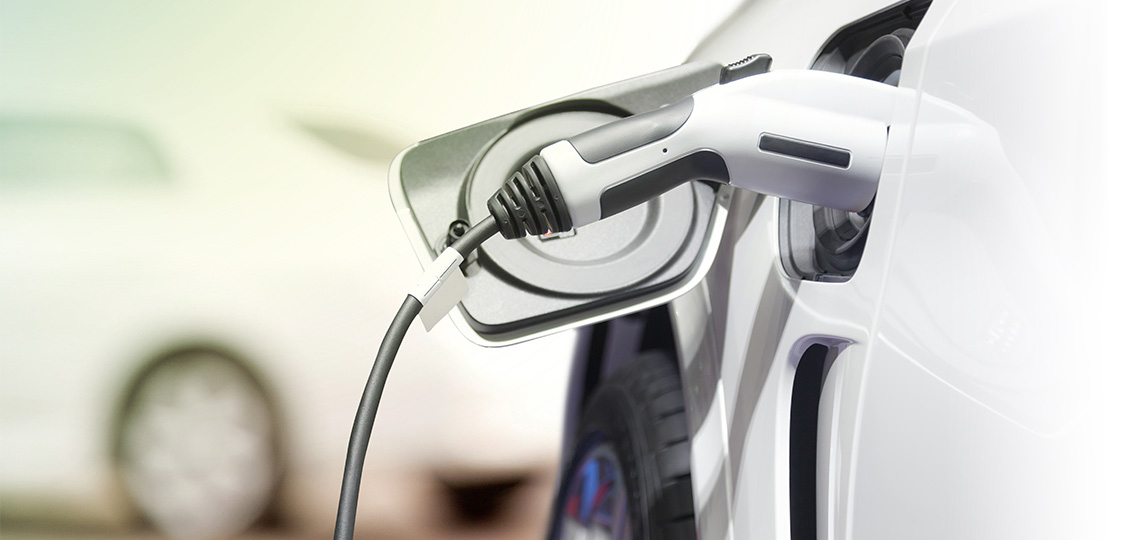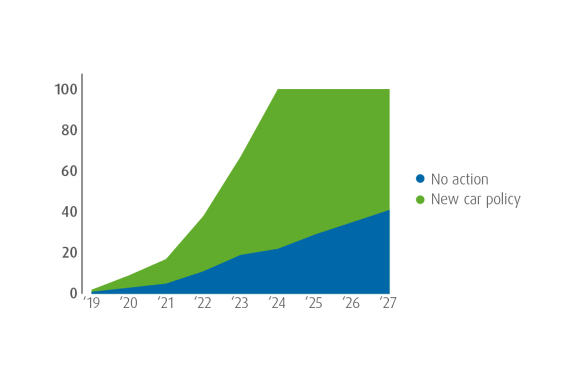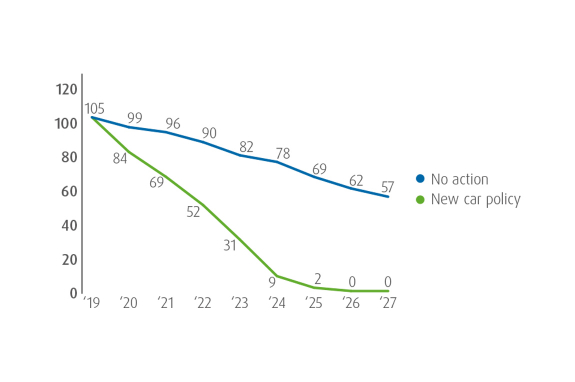
Umicore travel and fleet policy (2019)

%

Grams of CO2 per kilometer
As a leader in sustainability, Umicore seeks to lead by example and to make a real difference in all areas, striving to reduce our environmental impact in everything we do. To this end, in 2019 Umicore revised company travel and car policies.
The overriding aim of Umicore’s new Responsible business travel policy, set in place in September 2019, is to reduce our environmental impact through a substantial reduction in air travel.
One solution is simply to reduce travel to essential business needs and make maximum use of modern communication technologies, in particular for internal meetings. When travel cannot be replaced by video or voice communication, employees take into account the carbon footprint when choosing the best way to travel. High speed trains which are now available in many regions are the preferred solution for destinations within a range of approximately 500 km, while public transport is preferred to cars and taxis within urban areas. Umicore employees are expected to re-examine and change their habits – such as driving frequency and style - in order to contribute to a cleaner environment without compromising safety, cost or quality.
Umicore has also decided to accelerate the greening of its own company car fleet. Starting with Belgium, where Umicore has its largest company car fleet and where the group is headquartered, Car policy was redefined in 2019 with the aim of rapidly and drastically reducing our carbon emissions, as opposed to the incremental improvements achieved in recent years though carbon exhaust limits. This new policy came into effect on 1 January 2020, after all practical arrangements had been made with car and service providers. Other countries will follow on during 2020 by applying this example to their local legislative conditions.
The main principles of the new car policy are that Umicore will only lease or buy full electric vehicles (EV) or plug-in hybrid vehicles (PHEV). Eventually, only EV models will be authorized. Umicore will provide appropriate charging facilities and encourage charging at the Umicore site during the working hours. Employees will be able to opt out of the company car system and receive a compensation in the form of gross salary. Umicore will of course continue to promote and support the use of public transportation.
Umicore’s ambition to reduce carbon emissions will also be achieved through changes in personal behavior and daily working practices of all employees. In 2019 Umicore announced the creation of a voluntary Umicore Climate Action Program for employees, which aims to collect and implement ideas to reduce the carbon footprint of Umicore’s non-industrial activities. Proposals should contribute to carbon emission reduction in areas including mobility, waste, food catering, office supplies… focusing on employees’ behavior and changes in the working environment. Successfully implemented proposals will be eligible for Umicore Awards.
Stories
- Formula E
- Gasoline particulate filters
- Energy storage at Umicore’s Olen site
- Umicore travel and fleet policy
- Cultivating young talent
- Stationary Catalysis
- Sustainable battery materials supply chain
- Umicore Capital Market Days in Seoul, Korea
- Umicore Argentina closed the loop for cooling water
- Employee Engagement
- Closing the loop for cobalt in consumer devices’ batteries
- Umicore Hoboken integrates refugees into the workforce
- Introducing the Umicore Awards
- Innovation for a sustainable future
- Bringing the world of sustainable technologies to students
- Growing for clean mobility
- Improving gender diversity in senior management
- Powering towards a future in electric Vehicles
- Smooth integration of Haldor Topsoe’s DeNOx technology
- Environment as a catalyst for improvement
- JUMPing across borders
- Expanding to meet the clean mobility challenge
- Ensuring sustainable cobalt sourcing
- Pushing for progress on safety
- New automotive catalyst plant to enable cleaner air
- Olen: Charging for the Future
- Collaborating on new metal recovery processes
